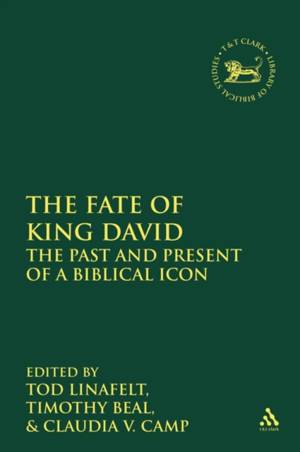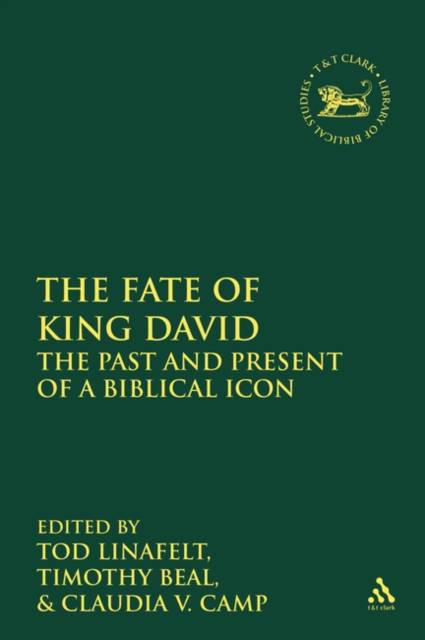
- Afhalen na 1 uur in een winkel met voorraad
- Gratis thuislevering in België vanaf € 30
- Ruim aanbod met 7 miljoen producten
- Afhalen na 1 uur in een winkel met voorraad
- Gratis thuislevering in België vanaf € 30
- Ruim aanbod met 7 miljoen producten
Zoeken
The Fate of King David
The Past and Present of a Biblical Icon
€ 58,45
+ 116 punten
Omschrijving
Celebrating the five hundredth volume, this Festschrift honors David M. Gunn, one of the founders of the Journal of Old Testament Studies, later the Library of Hebrew Bible/Old Testament Studies, and offers essays representing cutting-edge interpretations of the David material in the Hebrew Bible and later literary and popular culture. Essays in Part One, Relating to David, present David in relationship to other characters in Samuel. These essays demonstrate the value of close reading, analysis of literary structure, and creative, disciplined readerly imagination in interpreting biblical texts in general and understanding the character of David in particular. Part Two, Reading David, expands the narrative horizon. These essays analyze the use of the David character in larger biblical narrative contexts. David is understood as a literary icon that communicates and disrupts meaning in different ways in different context. More complex modes of interpretation enter in, including theories of metaphor, memory and history, psychoanalysis, and post-colonialism. Part Three, Singing David, shifts the focus to the portrayal of David as singer and psalmist, interweaving in mutually informative ways both with visual evidence from the ancient Near East depicting court musicians and with the titles and language of the biblical psalms. Part Four, Receiving David, highlights moments in the long history of interpretation of the king in popular culture, including poetry, visual art, theatre, and children's literature. Finally, the essays in Part Five, Re-locating David, represent some of the intellectually and ethically vital interpretative work going on in contexts outside the U.S. and Europe.
Specificaties
Betrokkenen
- Uitgeverij:
Inhoud
- Aantal bladzijden:
- 352
- Taal:
- Engels
- Reeks:
- Reeksnummer:
- nr. 500
Eigenschappen
- Productcode (EAN):
- 9780567434654
- Verschijningsdatum:
- 12/04/2012
- Uitvoering:
- Paperback
- Formaat:
- Trade paperback (VS)
- Afmetingen:
- 156 mm x 234 mm
- Gewicht:
- 485 g

Alleen bij Standaard Boekhandel
+ 116 punten op je klantenkaart van Standaard Boekhandel
Beoordelingen
We publiceren alleen reviews die voldoen aan de voorwaarden voor reviews. Bekijk onze voorwaarden voor reviews.










